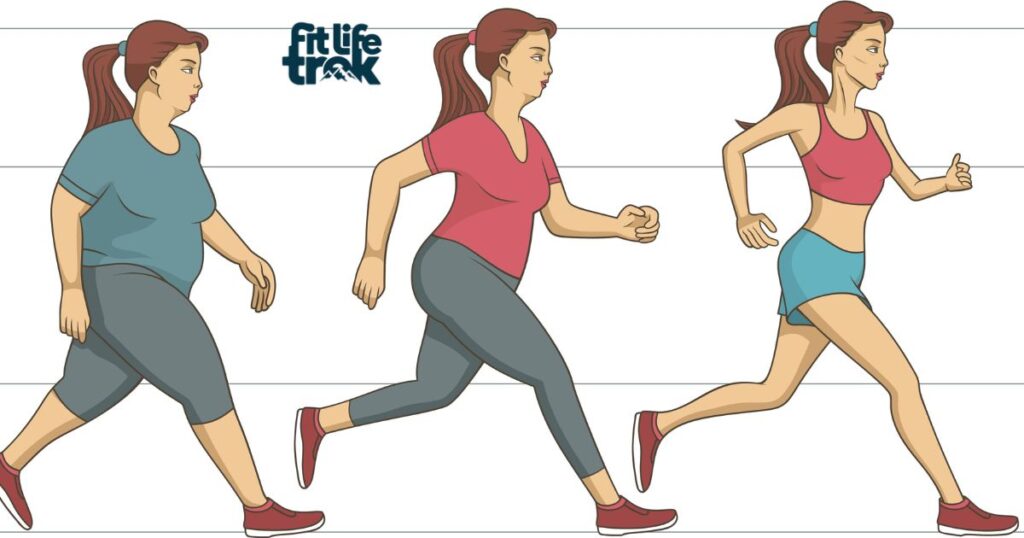Walking 15,000 steps can burn a significant number of calories. It depends on your weight, speed, and overall activity. On average, you can burn about 550-600 calories.
Want to know how much energy you’re burning? Walking 15,000 steps daily can transform your health. Stick with me, and I’ll show you how.
For a person weighing 150 pounds, walking 15,000 steps burns around 550-600 calories. The faster you walk, the more you burn. Factors like pace, age, and terrain can affect the total calories burned.
Walking 15,000 steps can burn a lot of calories. A person who weighs 150 pounds burns around 550-600 calories by doing this. The exact number depends on things like your weight and how fast you walk. If you walk faster, you burn more calories. Walking every day helps you stay healthy and fit. It’s a simple way to manage your weight and keep your heart strong
How Long Does It Take to Walk 15000 Steps?

Walking 15,000 steps usually takes about 2 to 2.5 hours. It depends on how fast you walk and how long your steps are. Most people walk at a speed of 3 miles per hour, so it takes time to cover 15,000 steps. It’s important to walk regularly to stay fit. Walking this many steps each day can help you improve your health and feel more active.
Read More About: How Many Calories Can You Burn in 5000 Steps? Your Secret Weapon
How Long Does It Take to Run 15000 Steps?
Running 15,000 steps takes less time than walking. On average, it takes about 63 to 70 minutes for someone running at a speed of 9 minutes per mile. Running burns more calories and helps improve fitness faster.
For new runners, it might take around 77 minutes at a slower pace of 11 minutes per mile. Experienced runners may finish in 49 to 56 minutes if they run at 7 minutes per mile. The time depends on your running speed, fitness level, and experience.
Factors Behind Covering 15000 Steps
Several factors affect how long it takes to cover 15,000 steps. Your walking speed and stride length are important. Taller people may cover more ground with fewer steps. The terrain matters too flat surfaces are easier than hills. Fitness level and experience also help. People who walk often can go farther and faster. These factors together affect how quickly and easily you can reach 15,000 steps.
Gender and Stride Length

Gender can affect stride length. Men often have longer strides than women because they tend to be taller. This means that men may cover more distance with fewer steps compared to women. Stride length is important because it affects how far you can walk in a set number of steps.
Walking Pace and Speed
Walking faster means you take bigger steps. Which helps you cover more ground in less time. If you walk slowly, it takes longer to reach 15,000 steps. A faster pace also burns more calories. Regular walking can help you increase your speed and improve your fitness over time.
Terrain and Environment
Terrain and environment play an important role in walking. Walking on flat and smooth ground is easier than walking on hills or rocky paths. When the path is difficult, it takes more energy and time to walk. Weather also affects how comfortable it is to walk. Hot, cold, or rainy weather can make walking harder. Choosing the right terrain can help you enjoy your walk and reach your step goals.
Height and Stride Efficiency
Height and stride efficiency are important for walking. Taller people often have longer strides, which means they can cover more distance with each step. Stride efficiency refers to how well a person uses their energy when walking.
Some people walk smoothly and quickly, while others may not. Practicing good walking habits can help everyone improve their stride efficiency, making it easier to reach goals like walking 15,000 steps each day.
Fitness Level and Experience
Fitness level and experience are important when walking. People who exercise regularly often find it easier to walk longer distances. They can take bigger steps and use less energy. Those with more experience know how to pace themselves better.

Beginners may feel tired more quickly. With practice, anyone can improve their fitness level. Walking regularly helps build strength and endurance, making it easier to reach goals like walking 15,000 steps a day.
Health Benefits of Walking 15000 Steps
Walking 15,000 steps has many health benefits. It helps the heart by improving blood flow. Regular walking also helps maintain a healthy weight. It strengthens muscles and bones. Walking can lift your mood and reduce stress. Overall, walking is a simple way to stay healthy and feel good every day.
1. Improves Cardiovascular Health
Walking regularly improves cardiovascular health. It helps the heart pump blood better. Good blood flow lowers the risk of heart disease. Walking also strengthens the heart muscle. It keeps blood pressure in a healthy range. A strong heart helps the body stay active and healthy for a long time.
2. Helps in Weight Management
Walking helps with weight management. It burns calories, which can help people maintain a healthy weight. Regular walking makes the body stronger and boosts energy levels. When combined with healthy eating, walking can prevent weight gain. It is a simple and enjoyable way to stay fit and feel great.
3. Increases Muscle Strength
Walking increases muscle strength in the legs and core. Strong muscles help the body move better and perform daily tasks. Regular walking also builds endurance, allowing people to walk longer distances with ease. This simple exercise keeps muscles healthy and supports overall fitness, making it important for everyone.
4. Enhances Mental Health
Walking enhances mental health by reducing stress and anxiety. It helps improve mood and boosts happiness. When people walk, their bodies release chemicals that make them feel good. Regular walking can also help with focus and concentration. This simple activity supports a healthy mind and overall well-being.
5. Promotes Flexibility and Balance
Walking promotes flexibility and balance in the body. It helps muscles and joints stay loose and healthy. Regular walking makes it easier to move and reduces the chance of falling. This simple exercise keeps the body strong and stable, which is important for everyone as they grow and age.
6. Boosts Immune System
Walking helps boost the immune system. It makes the body stronger and better at fighting sickness. When you walk regularly, your blood flows well, and your body can heal faster. A strong immune system means fewer colds and illnesses. Staying active is a great way to stay healthy and strong.
7. Promotes Better Sleep
Walking helps promote better sleep. When you walk regularly, your body feels tired in a good way. This makes it easier to fall asleep at night. Good sleep helps you feel fresh and ready for the day. A simple walk can help you rest well and feel happy.
8. Improve Bones Density
Walking helps improve bone density. Strong bones are important for your body. When you walk, your bones get stronger and healthier. This helps prevent problems like weak bones later in life. Walking is a simple way to keep your bones fit and strong. It is good for your overall health.
9. Enhance Digestive System
Walking helps your digestive system work better. It moves food through your body. This can make you feel good and help you stay healthy. When you walk, your body gets the nutrients it needs from food. Regular walking keeps your tummy happy and helps you feel energetic.
Can I Lose Weight By Walking 15000 Steps a Day?
Walking is good for your digestive system. It helps food move through your stomach and intestines. When you walk, your body works better at breaking down food. This helps you get the vitamins and minerals you need.

Regular walking can also prevent tummy problems. It can help you avoid feeling bloated or having gas. Walking makes your digestive system strong and healthy.
If you walk every day, your digestion improves. This can make you feel energetic and happy. A simple walk can do wonders for your tummy and overall health.
Am I active if I walk 15000 steps a day?
Walking 15,000 steps a day is a great way to stay active. It shows that you move a lot and care about your health. Walking helps your body and mind feel good.
Being active means you do exercises that make your heart beat faster. Walking is a fun way to do this. It helps you stay fit and strong.
How to Make Your Walk Enjoyable?
Making your walk enjoyable is easy. You can choose a nice route with beautiful views. Listening to music or talking with a friend makes it fun. Try to walk at a pace that feels comfortable for you. Enjoy each step.
Choose the Right Walking Route
Look for paths that are safe and well-lit. Parks or nature trails are great options. Enjoy the sights and sounds around you. A good route can make your walk more fun and relaxing.
Incorporate Interval Training
Incorporating interval training into your walks can be fun. This means walking fast for a short time, then walking slowly. You can repeat this several times. It helps your heart and burns more calories.

Interval training makes your walks more interesting. It adds variety to your routine. You can choose different speeds and lengths for your intervals. This keeps you engaged and helps improve your fitness.
Practice Deep Breathing
Practicing deep breathing while walking is very helpful. You can breathe in deeply through your nose and then breathe out slowly through your mouth. This helps your body get more air and makes you feel relaxed.
Deep breathing also helps clear your mind. It can reduce stress and improve focus. Enjoy your walk more when you feel calm and happy.
Use a Pedometer or Fitness Tracker
Using a pedometer or fitness tracker is a great way to count your steps. These devices can show how far you walk each day. They help you see your progress and stay motivated.
A fitness tracker can also show how many calories you burn. This information can help you reach your walking goals. Enjoy tracking your steps and improving your health
Implement a Reward System
A reward system can make walking more fun. When you reach your walking goals, treat yourself to something special. It can be a small snack, a new book, or extra playtime.
This system helps you stay excited about walking. Rewards can motivate you to keep moving and enjoy your journey to better health.
Potential Risks for Walking 15000 Steps

Walking 15,000 steps is good for health, but there can be risks. Some people may feel tired or have sore feet. It is important to wear comfortable shoes and take breaks. Always listen to your body and rest when needed.
1. Injury Risk
Walking 15,000 steps can be great for health, but it may also cause injuries. Some common injuries include sore muscles and blisters. It is important to wear good shoes to support your feet. Stretching before and after walking helps to prevent injuries. Always pay attention to your body and take breaks if needed.
2. Dehydration
Walking 15,000 steps can make you sweat a lot. This sweat can lead to dehydration. Dehydration happens when your body loses more water than it takes in. It is important to drink water before, during, and after your walk. Staying hydrated helps keep your energy up and your body healthy. Always carry a water bottle when walking.
3. Fatigue and Overtraining
Walking 15,000 steps every day can make you tired. This tiredness is called fatigue. If you walk too much without resting, your body may not have time to recover. Overtraining can lead to sore muscles and a lack of energy. It is important to listen to your body and take breaks when you need them.
4. Footwear
Wearing the right shoes is important when walking 15,000 steps. Good footwear gives support and comfort to your feet. Shoes that fit well can help prevent blisters and pain. It is best to choose shoes made for walking. Always check your shoes for wear and replace them when needed.
5. Rainy Weather
Walking in rainy weather can be tricky. It is important to wear a raincoat and use an umbrella to stay dry. Wet surfaces can be slippery, so it is wise to walk carefully. Dress in waterproof shoes to keep your feet warm and dry during your walk.
6. Terrain and Surroundings
The terrain and surroundings can affect walking. Flat paths are easier to walk on than hills. Walking on grass or sand can be more challenging. Look for safe and smooth places to walk. Enjoy the scenery, like trees and flowers, while walking outside. It makes the walk more fun.
Read More About: Walk Your Way to Happy & Healthy:5 km a Day Keeps the Doctor Away
Map Out a Walking Exercise Plan

Make a walking exercise plan to stay active. Choose a safe route to walk each day. Set goals for how far to walk. Follow your plan to get better at walking.
Set your goals
Set your goals to stay focused. Choose small, easy goals first. This can be walking a little more each day. As you improve, you can make bigger goals for yourself.
Choose a walking route
Choosing a good walking route is important. Look for safe paths or parks. A nice view can make walking more fun.
You can also choose a route near your home. Try to walk where there are fewer cars. This makes walking easier and more enjoyable for you.
Warm-up
Warming up is very important before walking. It helps your muscles get ready. Stretch your legs and arms gently. This can prevent injuries.
Take a few minutes to walk slowly. This helps your body adjust. A good warm-up makes your walk more enjoyable and safe for you.
Start slow
Starting slow is important when you walk. Begin with a gentle pace. This helps your body get used to the activity. After a few minutes, you can increase your speed. Starting slow keeps you safe and makes walking more enjoyable.
5. Include intervals
Including intervals in your walk can make it more fun. This means walking fast for a short time, then slowing down. Doing this helps your heart stay strong. It also helps you walk longer without getting too tired.
Cool down
Cooling down after walking is very important. It helps your heart rate slow down slowly. You can walk slowly for a few minutes. Stretching your muscles is also helpful. This prevents stiffness and keeps your body healthy.
Establish a schedule
Establishing a walking schedule is a good idea. It helps you know when to walk each day. Choose a time that fits into your day easily. This can be in the morning or after school.
Following your schedule is very important. You can stay motivated by walking with friends. This makes it more fun and helps you stick to your plan.
Track your progress
Tracking your progress is a smart way to stay motivated. You can write down how many steps you take each day. This helps you see how you improve over time. You can also use apps or pedometers to keep count. Watching your progress makes walking fun and exciting.
Conclusion
Walking is a great way to stay healthy. When you walk 15,000 steps, you burn a good number of calories. This helps your body stay fit and strong. Regular walking can also improve your mood and boost your energy.
Knowing how many calories you burn in 15,000 steps is important. It helps you understand your health better. Walking can also be fun. You can walk with friends or explore new places. Make walking a part of your daily routine. It is easy to do and has many benefits for your body and mind. Enjoy your walks and stay active.
FAQ’s
How many calories do 15k steps burn?
Walking 15,000 steps typically burns about 600 to 900 calories, depending on factors like your weight, speed, and walking terrain. This makes it an effective way to support weight management and overall fitness.
How much weight do you lose with 15000 steps?
Walking 15,000 steps can help you lose approximately 1 to 2 pounds per week, depending on your diet and overall activity level. Consistent walking at this level supports weight loss by burning extra calories.
How many steps to burn 1000 calories?
To burn 1,000 calories, you typically need to walk around 10,000 to 15,000 steps, depending on factors like your weight and walking speed. Walking faster or adding inclines can help you reach this goal more quickly.
What does 15000 steps do to your body?
Walking 15,000 steps can improve cardiovascular health, strengthen muscles, and enhance mental well-being. It also aids in weight management and boosts overall energy levels.

